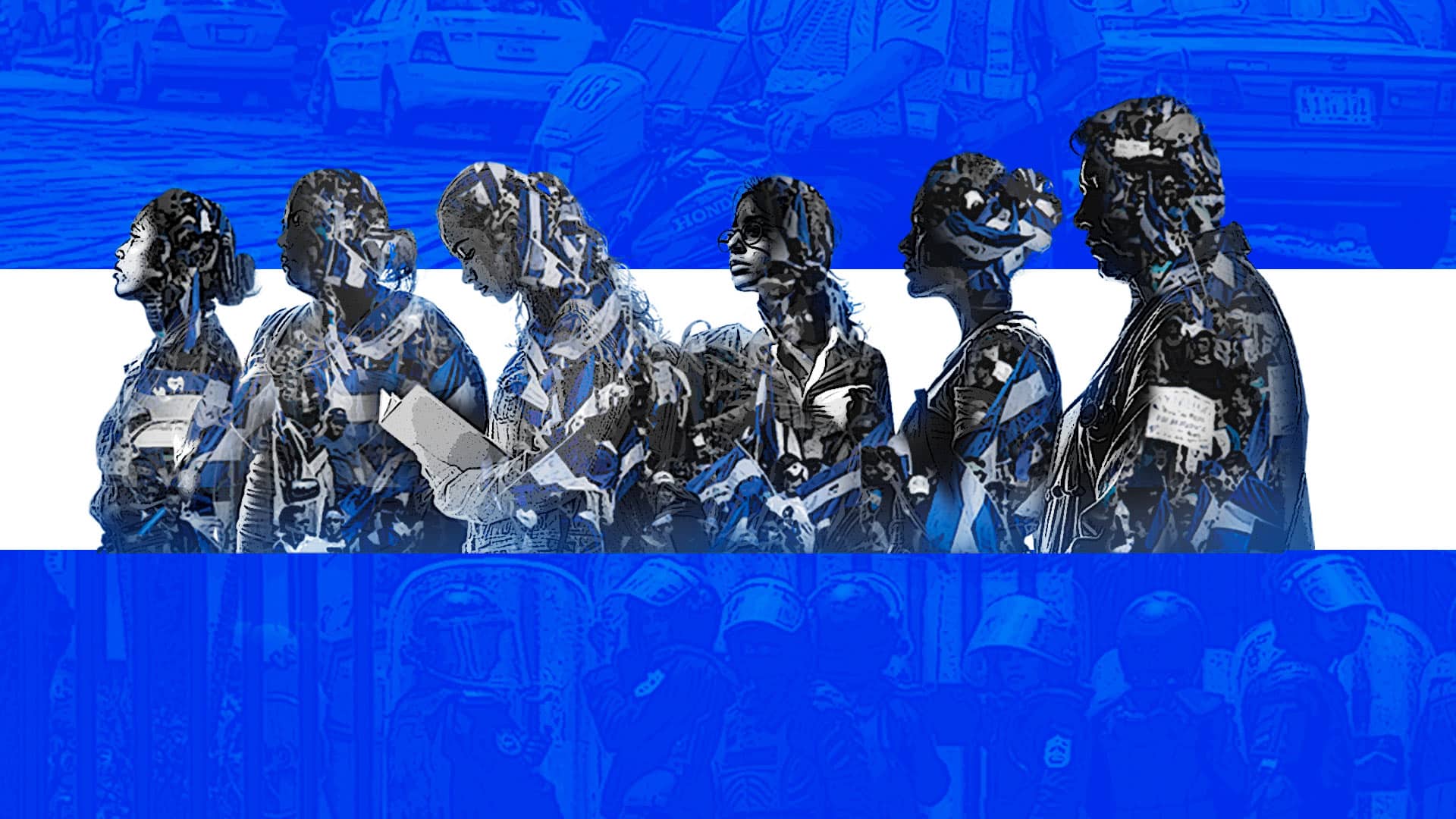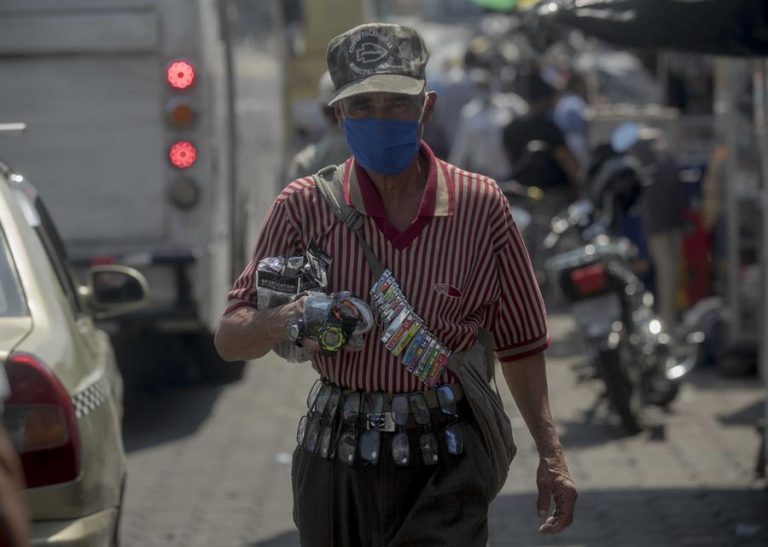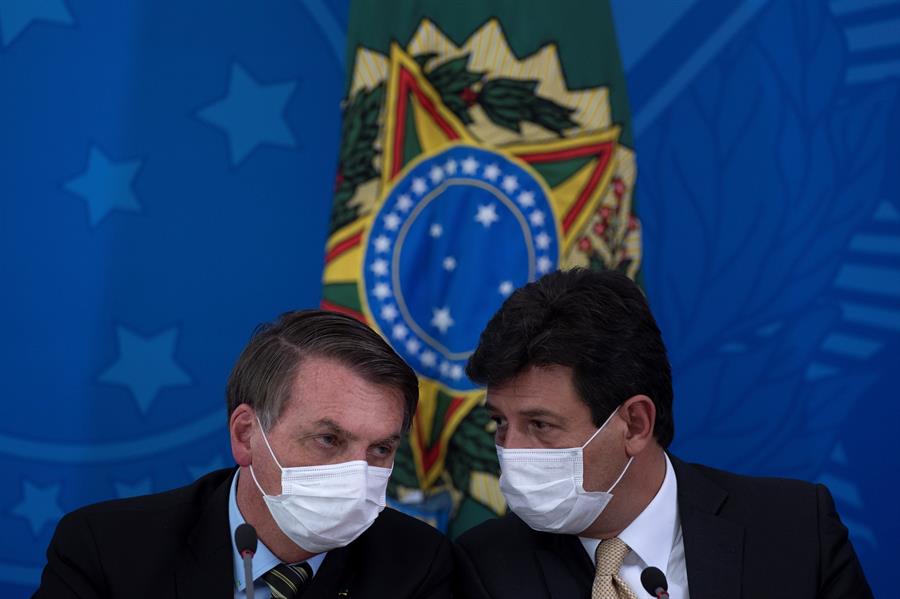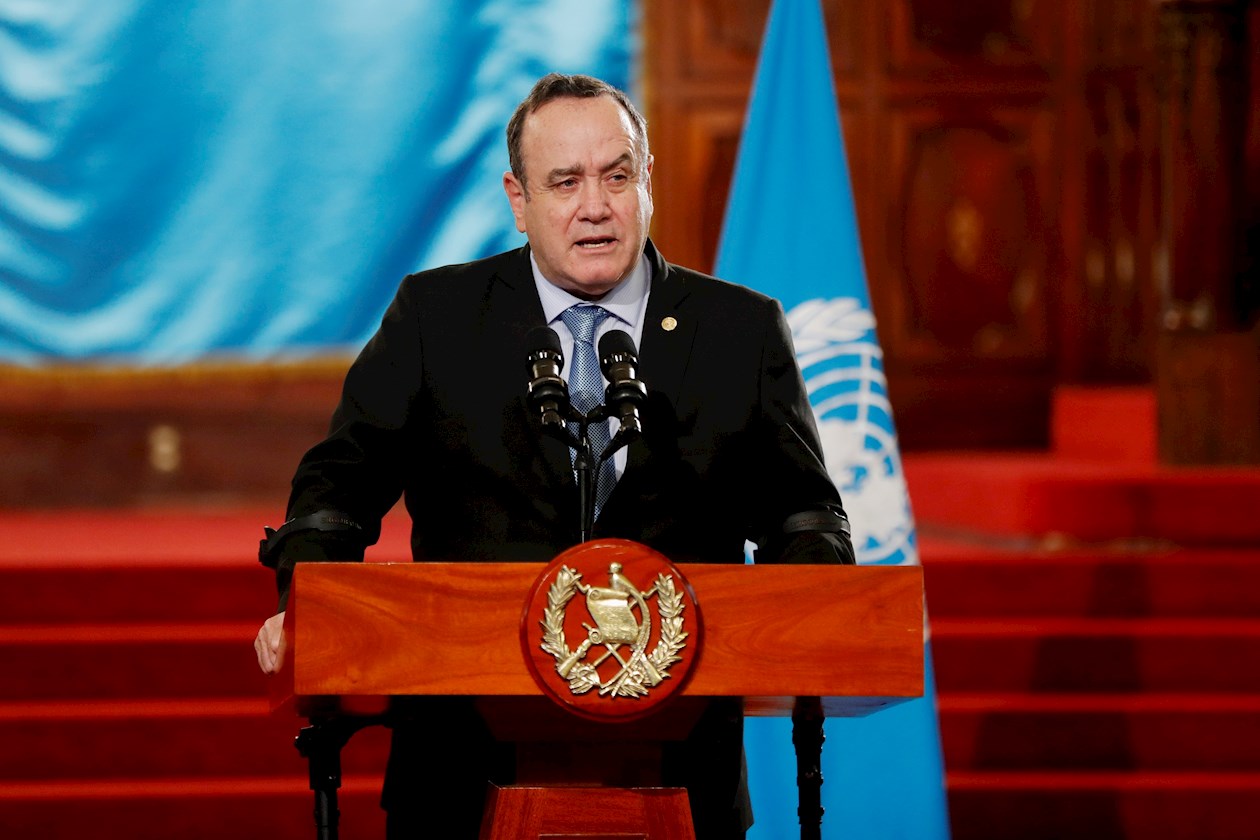31 de mayo 2020

Six Years With April in Tow: Life Under Nicaragua's New 'Normal'

PUBLICIDAD 1M
PUBLICIDAD 4D
PUBLICIDAD 5D
At least seven presidents in Latin America have used the information on Covid-19 as an excuse to discredit journalists.

The government of Daniel Ortega accused Nicaraguan journalists of creating fake news to cause a “pandemic of hatred and fear”. This type of government attack has been prevalent in the last few years, and isn’t exclusive to Ortega. In Brazil, Ecuador, Honduras, Peru and Venezuela, reporters have suffered similar attacks.
“In general, the attacks haven’t ceased, and the Coronavirus has then allowed leaders to impose restrictions on the exercise of journalism, put obstacles in the way of accessing information, institute arbitrary detentions and approve restrictive laws,” informs the platform Voces del Sur [“Voices of the South”], which monitors the complaints and aggression against the press in the region.
According to their report: “COVID-19, a pretense for restricting the work of the press,” journalists from the aforenamed countries have been discredited, defamed, and in some places, such as Venezuela, detained for publishing “fake news”.
In Nicaragua, Rosario Murillo, chief government spokesperson and vice president, has publicly accused the communications professionals of promoting hate. “We realized that, given their lack of ideas and proposals, they plan to create, continue creating, false realities,” she stated.
In addition, the government has promoted campaigns denigrating journalists in their own communications media and social media networks, as well as in the public universities. They have even performed what they call “social experiments” involving dissemination of false information, in order to try and deceive reporters.
“It’s an obligation of the State to provide true, verified and opportune information. It’s a right of citizens to learn this information. Any information that is maliciously altered, any information that is incorrect due to negligence should be avoided. No State should hide the situation that their country is experiencing, because it doesn’t allow that government to be able to face the pandemic and it generates great uncertainty for the population,” says Joel Hernandez, president of the Inter-American Commission for Human Rights.

Brazilian president Jair Bolsonaro. Phot: EFE
Jair Bolsonaro, president of Brazil, is one of the presidents who has attacked the journalists in his country most aggressively. He has classified them as the “despicable and lying press”. These attacks have increased in the context of the pandemic. Recently, he even confirmed that he hasn’t read the newspapers for years.
“All [my subscriptions] have been cancelled. I don’t receive any newspapers or magazines. Whoever wants them can go and buy them, because reading the press poisons you,” he stated.
In 2019, the Knight Center for Journalism in the Americas reported 116 attacks against the press on the part of the Brazilian president. “It’s the first time in Brazil that we have someone occupying the seat of the presidency who carries out systematic attacks against the media and journalists,” stated Maria Jose Braga, president of the National Federation of Journalists in that country.
The attacks have also been reproduced by some of Bolsonaro’s sympathizers. According to “Voices of the South”, up through April 21, groups close to Bolsonaro had been responsible for 13 reported acts of aggression or attacks against those who work in communications. There have also been reports of restrictions to the internet.
“President Jair Bolsonaro bears the principal responsibility for generating a prejudicial discourse against the communications media, which he has publicly disparaged. In addition, he has questioned the coverage of information and hasn’t wanted to give declarations to the press, alleging that he can’t “waste his time”, they report.
In Venezuela, journalists risk jail. One emblematic case was that of Venezuelan journalist Darvinson Rojas, who was detained for 12 days for publishing information on COVID-19. Government officials arrested him for the supposed crimes of instigating hate and public disturbance. However, the true cause was that he published some statistics about the pandemic that didn’t coincide with the official data.
That’s not the only case where freedom of the press has been violated in that country, as IPYS, the Institute for Venezuelan Press and Society, stated in the “Voices of the South” report. Between March 1st and April 21st, there were 14 detentions and more than 20 aggressive acts committed against journalists and the media.
“From the moment that the first infections were announced in the country, restrictions have been imposed on the freedom of those who work for the press. These have become the main root of violations against the right of the media and journalists to inform,” the document reads.
Guatemala: False accusations against the press

EFE/ Esteban Biba/Archivo
From the very beginning of the presidency of Alejandro Giammattei in Guatemala, attacks against the press began increasing. According to the denunciation of over 100 journalists, they have been harassed, intimidated and censored. This hasn’t stopped, despite the world public health emergency.
Giammattei has accused journalists of requesting sensitive information from patients infected with the novel Coronavirus.
He even accused some journalists of bursting into the National Hospital of Nueva Villa, where some of the infected are being treated. These accusations were unfounded.
“We have always asked for information that would be public in any country of the world that prides itself on being a democracy and that is responding to this crisis in a responsible way. There as examples you have the governments of Mexico, El Salvador and Costa Rica. The opposite is true of the Nicaraguan dictatorship,” responded an editorial in “Nomad”, a Guatemalan digital news publication.
Like his counterpart in Nicaragua, Giammattei has centralized the information about the pandemic’s evolution, and suspended press conferences.
In Honduras, there have been at least 19 violations of the right to freedom of the press, states “C-Libre”, the Committee for Free Expression, in that country. These include acts of physical or verbal aggression, denigrating speeches and detentions. Lisandro Rosales, special commissioner for COVID-19, slurred the communicators as “embittered people.”
“The situation for the Honduran press is very complex. In the context of the pandemic, they’ve reported lay-offs, suspensions and salary deductions, a reality that extends throughout the Latin American region,” reads the “Voices of the South” report.
From the initial moments of the pandemic in Honduras, President Juan Hernandez Alvarado began a series of actions to cut off the freedom of the press by suspending Article 72 of the Constitution that guarantees journalists that they will not be the object of “persecution” for carrying out their duties, even during a state of siege.
In Peru, in the face of their lack of access to information, journalists were obliged to request that the government include them in their virtual press conferences on COVID-19, so that they could question the presidency’s actions regarding the pandemic. In addition, the “Institute for Press and Society” in Peru (IPYS, Peru) has reported at least two arbitrary detentions of journalists.
The most recent occurred on May 8th, when journalist Sandor Renilla was accused of “disturbing the public peace” for having published the story of a 51-year-old woman who died of symptoms suggestive of COVID-19, because even though they called the Health Ministry she never received medical attention
“The legal complaint was filed by the legal advisor of the “Nuevo Chimbote” Regional Hospital. The document is signed by the hospital director. In times of pandemic, this crime can be punished with up to six years in jail,” IPYS notes.
Archivado como:
PUBLICIDAD 3M
Confidencial es un diario digital nicaragüense, de formato multimedia, fundado por Carlos F. Chamorro en junio de 1996.
PUBLICIDAD 3D